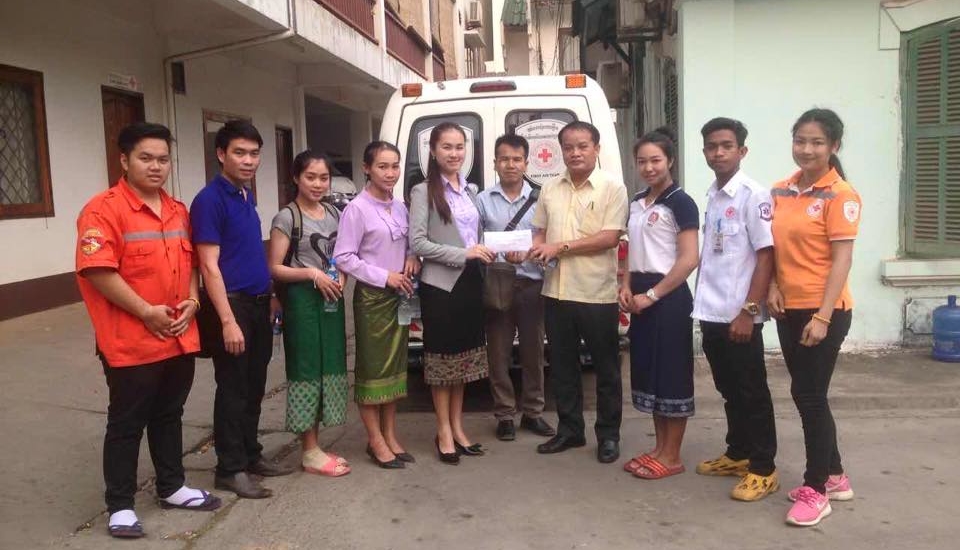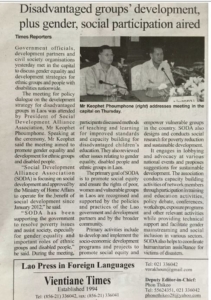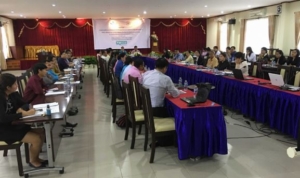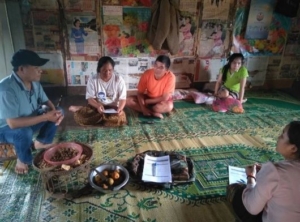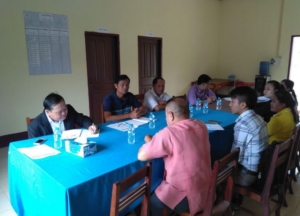Project
Enhance Partnerships to Support Ethnic Children With Disabilities
-
Amount Funded
77,024 EUROProject Duration
01 Jan 2018 - 31 Dec 2019 -
-
Lead organisation
-
Since 1993, the Social Development Group of the National University of Laos, has provided technical assistance to the Farmer Irrigated Agriculture Training Project to organise various agricultural extension trainings for farmer groups. Since 1997, they have supported gender mainstreaming for the Lao Women’s Union (LWU) and various international and national agencies. This group has provided a large number of gender-related activities and social development work including:
- conduction of gender workshops
- carry out a series of Training of Trainers workshop for development work
- conduction of social research and survey projects
- design and construction of irrigation projects
- organisation of workshop on integrated water resource management
- training on rural development project management
- development of national gender profile
- formulation of national gender policy for various sectors
- project formulation and assessment.
As part of the 2009 decree on associations, SODA received an official registration from the Ministry of Home Affairs to operate its mandate as a Non Profit Association for social development in January 2012. The vision for SODA is a society free of poverty, social equity, and gender equality for Lao PDR. SODA’s MISSION: To develop and implement the socio-economic development programs and projects to reduce poverty and promote social equity; To lobby and advocate for policies for sustainable development; To design and conduct the social research for poverty reduction and sustainable development; and To build capacity of the target groups and working partners on gender mainstreaming skills. MAIN GOAL: To promote social equity to ensure that the rights of poor, women and vulnerable groups in Lao PDR are recognised and supported by the policies and practices of the Lao government and development partners, and by the wider community.
-
Organisation
Since 1993, the Social Development Group of the National University of Laos, has provided technical assistance to the Farmer Irrigated Agriculture Training Project to organise various agricultural extension trainings for farmer groups. Since 1997, they have supported gender mainstreaming for the Lao Women’s Union (LWU) and various international and national agencies. This group has provided a large number of gender-related activities and social development work including:
- conduction of gender workshops
- carry out a series of Training of Trainers workshop for development work
- conduction of social research and survey projects
- design and construction of irrigation projects
- organisation of workshop on integrated water resource management
- training on rural development project management
- development of national gender profile
- formulation of national gender policy for various sectors
- project formulation and assessment.
As part of the 2009 decree on associations, SODA received an official registration from the Ministry of Home Affairs to operate its mandate as a Non Profit Association for social development in January 2012. The vision for SODA is a society free of poverty, social equity, and gender equality for Lao PDR. SODA’s MISSION: To develop and implement the socio-economic development programs and projects to reduce poverty and promote social equity; To lobby and advocate for policies for sustainable development; To design and conduct the social research for poverty reduction and sustainable development; and To build capacity of the target groups and working partners on gender mainstreaming skills. MAIN GOAL: To promote social equity to ensure that the rights of poor, women and vulnerable groups in Lao PDR are recognised and supported by the policies and practices of the Lao government and development partners, and by the wider community.
-
Project
There is a critical need to include ethnic minorities in governance processes in order to ensure they benefit from national development outcomes in a participatory and equitable manner. At the macro level, this project strengthens the working partnerships among key stakeholders to deliver responsive and accountable governance mechanisms that take into account the needs and priorities of the ethnic community. This is done by formulating national policies, supporting national dialogue especially on the issues of ethnic children with disabilities and facilitating knowledge sharing and learning. The project takes initial steps to strengthen the capacity of Non-Profit Associations (NPAs), Disabled People Organisations (DPOs) and key stakeholders to develop working tools and to improve advocacy and planning skills for the development of responsive programmes, which address the problems and critical needs of ethnic children with disabilities. At the micro level, both ACDA and SODA have identified a total of 30 villages and 6 inclusive education schools in Sekong, Xiengkhaung, and Bolikhamsay provinces for advocacy of community-based inclusive development approaches. The project seeks to foster participatory community planning and implementation using a gender-sensitive approach, gender empowerment of children with disabilities, and to enhance coordination and collaboration among different local civil society groups, and local governments. Collectively they address the challenges of a standard life and improved capacities of children with disabilities.
-
There is a critical need to include ethnic minorities in governance processes in order to ensure they benefit from national development outcomes in a participatory and equitable manner. At the macro level, this project strengthens the working partnerships among key stakeholders to deliver responsive and accountable governance mechanisms that take into account the needs and priorities of the ethnic community. This is done by formulating national policies, supporting national dialogue especially on the issues of ethnic children with disabilities and facilitating knowledge sharing and learning. The project takes initial steps to strengthen the capacity of Non-Profit Associations (NPAs), Disabled People Organisations (DPOs) and key stakeholders to develop working tools and to improve advocacy and planning skills for the development of responsive programmes, which address the problems and critical needs of ethnic children with disabilities. At the micro level, both ACDA and SODA have identified a total of 30 villages and 6 inclusive education schools in Sekong, Xiengkhaung, and Bolikhamsay provinces for advocacy of community-based inclusive development approaches. The project seeks to foster participatory community planning and implementation using a gender-sensitive approach, gender empowerment of children with disabilities, and to enhance coordination and collaboration among different local civil society groups, and local governments. Collectively they address the challenges of a standard life and improved capacities of children with disabilities.
-
A key result has been influencing the government’s approval of the Ethnic decree, by making the importance of social inclusion in the ethnic decree clearer to stakeholders. Gender, disability, and ethnicity issues were mainstreamed and integrated into the ethnic decree, which serves as a foundational policy document to ensure that their rights are protected. Moreover, the project team created several working tools, including a project management manual that is gender, disability, and ethnicity sensitive, as well as an advocacy manual. Government workers from nine ministries and officers from 20 civil society organisations have gained knowledge on social inclusion issues and were starting to improve their work. Finally, SODA and ACDA worked together to create a policy platform, while improved local Disabled People’s Organisations’ (DPOs’) ability to identify, plan, and influence local decision-making.
Photos





